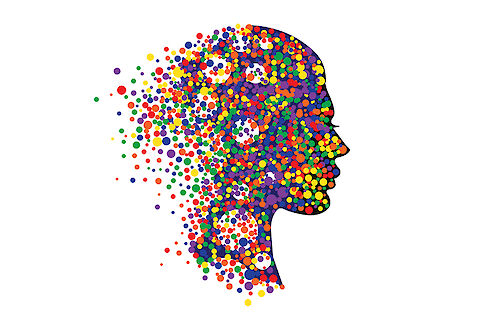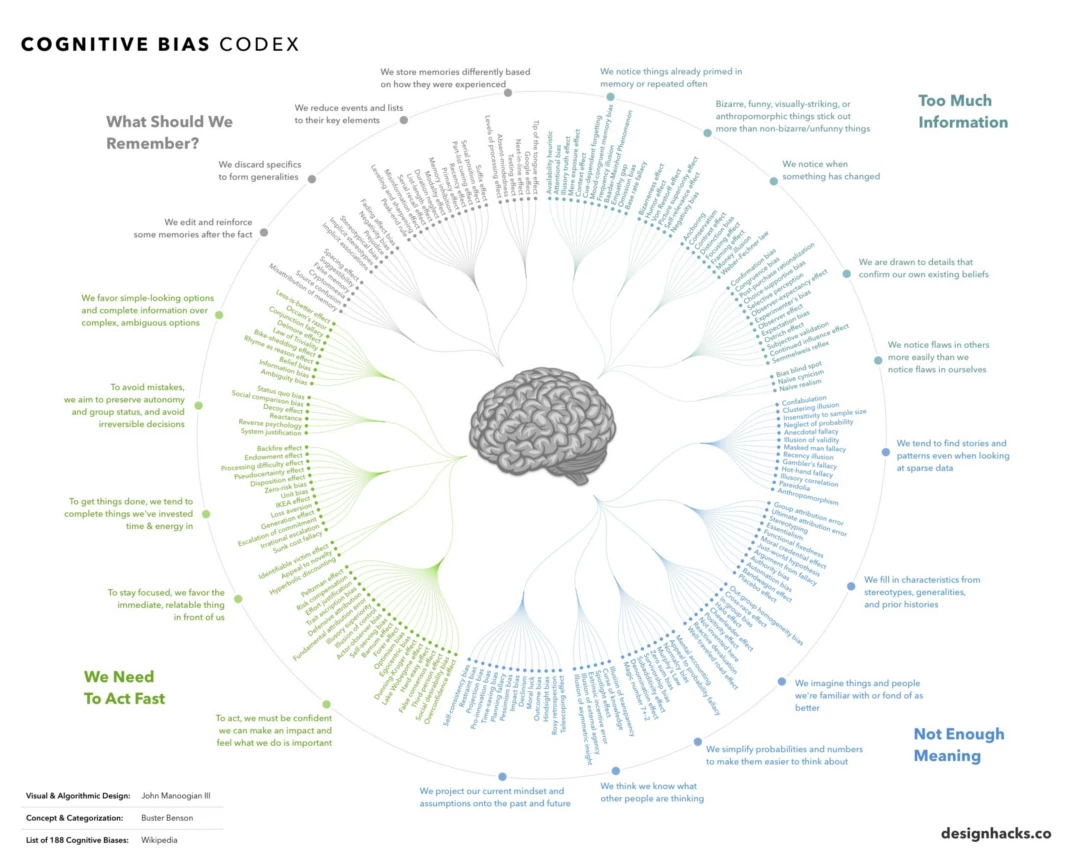

Cognitive bias and the paranormal
The more I have researched the paranormal over the years, the more I realized just how much psychology of the mind plays a significant role. I have already written a whole book about it and I am still only scratching the surface. I am no psychologist of course and don't claim to be, but we know that the human brain is so complex, that Scientists don't even know all there is to know about how and why it works the way it does. While there is a lot about the human mind that we don't know, there are areas that we do know and this is what we need to look at in connection with the way we think about paranormal phenomena. Why? I am not suggesting that experiences are all in our heads because you will know that is not what I believe at all, but I do believe that not everything we experience is paranormal. Sometimes our brain does play tricks on us and it is important to know if what we have experienced is simply a product of our brain or something more. Once you can eliminate these factors, it makes our experiences all the more interesting and significant. We all know that weird stuff happens and that is what a lot of us are looking for. So how do we know what is just 'normal'? It starts with understanding cognitive bias.
What is cognitive bias?
A cognitive bias is an error in the way that we think. It means we are not necessarily thinking with a 'clear mind'. Our experiences, our beliefs, and our intentions all influence the way we think, the way we make decisions, and the way we interpret our surroundings. Just the fact that we believe in the paranormal makes us bias. It means we are more prone to 'self-fulfilling prophecy' where our brain is likely to interpret certain things to be paranormal when they are not. We go in looking for the paranormal and our 'brain' makes us find it even if it is not really there. At the other end, a full skeptic is also biased and will tend to look for a rational explanation discounting any sort of ambiguous event without even looking into the possibility it could be something we don't quite understand. No one is immune, however by applying critical thinking and taking a moment to really think things through instead of reacting or responding rashly can make a huge difference.
Psychology itself is full of 'effects'. They all demonstrate the different ways we are influenced by our brains. Whether we see things that aren't there, hear things that aren't there, misinterpret information right through to how we behave can all be tied back to one of these 'effects'. While you may think they seem irrelevant, they can be beneficial tools when it comes to investigating the paranormal. While a lot of people complain about electronic equipment not being reliable during an investigation, the same thing could be said about our brains. Knowledge is power and just knowing about these things makes us more aware and in turn, makes us better paranormal investigators. An experience could so much more significant when we can in fact rule out all the little things that trick us into thinking something is happening and we can truly start asking questions.
To make us even more unreliable, there are actually 188 different cognitive bias with new ones are popping up all the time.

Source: https://www.visualcapitalist.com/every-single-cognitive-bias/
Articles about cognitive bias and the paranormal
This is an area that I myself focus a lot of my research on. Here are just some of the articles I have written on different areas of cognitive bias and how they can relate to the paranormal field and our experiences.
The Dunning-Kruger Effect is a cognitive bias where a person overestimates how much they think they know about a subject.
Do we cast people into paranormal stereotypes?
Implicit bias is a thought or feeling that we are not consciously aware of, or we may even think we don't have them. Are we implicitly bias towards the different stereotypes within the paranormal field?
Cryptomnesia and paranormal investigating
Cryptomnesia is essentially a memory or information that you know, but you are not aware that you know it. A forgotten memory. Can this impact the information we believe we are receiving during our paranormal investigations?
The observer-expectancy effect
Otherwise known as the experimenter effect, this is a cognitive bias that can cause us to unknowingly manipulate or misinterpret the results of an experiment. Even the questions we ask or the way we guide subjects during a paranormal investigation can affect the outcome of the experiment.
Are we willing to accept evidence?
Once something is added to your collection of beliefs, you protect it from harm. You do this instinctively and unconsciously when confronted with attitude-inconsistent information. Just as confirmation bias shields you when you actively seek information, the backfire effect defends you when the information seeks you, when it blindsides you. Does the backfire effect mean we will not accept information that goes against what we believe?
Perceptual Bias and the Paranormal
How we perceive the paranormal is influenced by our own belief systems. Perception and reality are different. Expectation alters perception. So let's look at an actual study on perceptual bias and the paranormal.
Blindspot Bias and the Paranormal
Sometimes we won't take another person's opinion on board because of their belief system or how they investigate. We think they are biased. At the same time, however, we are failing to recognize that by thinking this way, we too are being biased.
Inattentional Blindness & the paranormal
Sometimes what we are looking for is right in front of us, but we can't see it because we are too focused on something else! If we are too focused on that piece of equipment or too busy thinking of questions to ask etc, we may be missing something right in front of our eyes!
Clustering Illusion or Synchronicity?
Clustering Illusion is a form of cognitive bias where a person sees a pattern in what are random sequences or events. How does this affect the way we think about paranormal phenomena? Is it random or is it synchronicity?
The anchoring effect & the paranormal
The anchoring effect is a form of cognitive bias where a person relies too much on information they already know which influences their decision-making process. Let's explore how this can impact us during a paranormal investigation
If you were to look at the list of the 188 cognitive biases, in most cases I would say you would be able to apply it in some way to paranormal investigating. Remember .... knowledge is power and once we can eliminate the trivial things, what we are left with is quite intriguing!
You can find more articles I have written about cognitive bias here:
https://llifs.com.au/blog/?tags=Stuff+paranormal+investigators+need+to+know
If you enjoy LLIFS, consider buying me a book (otherwise known as buy me a coffee but I don't drink coffee and I LOVE books). Your donation helps to fund the LLIFS website so everyone can continue to access great paranormal content and resources for FREE!

Top pages with similar subjects
Don't forget to follow the Facebook page for regular updates
Join the mailing list to receive weekly updates of NEW articles. Never miss an article again!
Buy the latest and past issues Haunted Magazine
Check out the books written by LLIFS
Comments
-
Kd Foreman 3 years ago
Well, rats! Seems like we're all a little more biased than we realized! Thanks for the insight :)